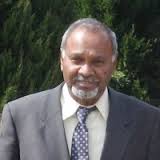The Green for Good Project is located at St. Margaret Mary Catholic School in Louisville, Kentucky. The project is meant to evaluate how a buffer of trees and shrubbery around the school may improve air quality and the health of the citizens. In addition, it is meant to show students how every person has an effect on the Earth. To read more on the Green for Good project, click here.
Food, Farms, Gardens
Earth Ministry: At the Table
At the Table is one of the two-part Caring for Creation program from Earth Ministries. It is meant to teach people of the impact planting, fertilizing, and watering crops can have on creation. It also teaches the importance of appreciating and celebrating the gift of “daily bread.” To read more on At The Tables, click here.
Earth Ministry Caring for All Creation
Earth Ministry has a two-part Caring for All Creation program that encourages individuals and communities to live with God’s creation. These two modules contain resources and worship aids that address specific environmental issues. At the Table and By the Waters were created to help change behaviors in these places in order to protect and restore the gift of God’s beloved creation. To read more about these two resources, click here.
Hunger and Climate Change
As a country full of natural resources, the impact of climate change is not always realized. However, our actions impact countries all over the world that have no choice in the matter. Hunger and Climate Change describes the effects that climate change has on places around the globe and future impacts on the United States. To read more or download this resource, click here.
Poverty and Hunger in a Changing Climate
Poverty and Hunger in a Changing Climate is a fact sheet from the Evangelical Lutheran Church in America. It describes the impact of climate change on hunger, food security and agriculture. This downloadable resource contains facts and quotes to help better understand the huge impact our actions have on the world. A quote from this document, “The great paradox of climate change is that those least responsible for the emission of pollutants harmful to the earth will be most severely affected and least able to adapt to changing conditions.” To read more or download this sheet, click here.
Episcopal Diocese of Ohio: Bellwether Farm
Bellwether farm is a new camp and education center of the Episcopal Diocese of Ohio. It is meant to provide leadership development and teachings through sustainable farming, food production, and care of the environment. It is located in Wakeman Ohio, with the goals of informing, inspiring, and empowering leaders for a sustainable future. The buildings are models of green technology featuring passive buildings, renewable energy, and water reclamation systems. To read more or see how to attend, click here.
Healthy Kids, Healthy Churches, Healthy Creation
The Healthy Kids, Healthy Churches, Healthy Creation is a downloadable guide from Creation Justice Ministries. It seeks to provide Christian congregations and faith groups with an easy-to-use guide for initiating conversations in their communities about environmental health and how our consumer choices such as food, building materials, and personal care products impact human health and Creation. Click here to download the guide.
Engaged Organization: Evangelical Lutheran Church in America World Hunger
Picture courtesy of
elca.org/The Evangelical Lutheran Church in America World Hunger is an initiative with domestic and international Lutheran churches to reach communities in need. They recognize the universal human right to food and work to provide immediate relief to those who are hungry. They strive to not only give food, but to connect people with the resources they need to produce food and gain access to clean water, education, health-care and sources of income. To read more about the ELCA and their work with World Hunger, click here.
Profile: Nigel Savage
Nigel Savage, originally from Manchester, England, founded Hazon in 2000, with a Cross-USA Jewish Environmental Bike Ride. Since then, Hazon has grown the range and impact of its work in each successive year; today it has more than 60 staff, based in New York City, at Hazon’s Isabella Freedman campus, and in other locations across the country. Hazon plays a unique role in renewing American Jewish life and creating a healthier and more sustainable world for all.
Hazon is one of a tiny handful of groups to have been in the Slingshot 50 every year since inception, and in 2008, Hazon was recognized by the Sierra Club as one of 50 leading faith-based environmental organizations.
Nigel has spoken, taught, or written for a wide and significant range of audiences. (A selection of his essays are at hazon.org/nigel). He has twice been named a member of the Forward 50, the annual list of the 50 most influential Jewish people in the United States, and is a recipient of the Bernard Reisman Award. He has given Commencement speeches at Wagner (NYU, in 2011) and at Hornstein (Brandeis, in 2014). In 2015 he was awarded an honorary doctorate by the Jewish Theological Seminary.
Before founding Hazon, Nigel was a professional fund manager in London, where he worked for NM Rothschild and was co-head of UK Equities at Govett. He has an MA in History from Georgetown, and has learned at Pardes, Yakar, and the Hebrew University. He was a founder of Limmud NY, and serves on the board of Romemu.
Nigel executive produced the British independent movies Solitaire For 2 and Stiff Upper Lips and had an acclaimed cameo appearance in the cult Anglo-Jewish comic movie, Leon The Pig Farmer. He is believed to be the first English Jew to have cycled across South Dakota on a recumbent bike.
Profile: Dr. Job Ebenezer
Dr. Job S. Ebenezer is the president of a nonprofit organization called Technology for the Poor. He is a retired professor of engineering. He started Technology for the Poor to design, innovate and disseminate simple technologies for less income people. He designed a dual purpose bicycle that can enable an ordinary bicycle to power small scale agricultural implements and other mechanical devices. He served as the director of the department of Hunger Education and Environmental Stewardship of the Evangelical Lutheran Church in America (ELCA). In 1993, he established a roof top garden at the ELCA building using wading pools. He established container gardens in several cites in the US as well as in Africa, Costa Rica, Belize, Ecuador and India. Recently, he is promoting vertical gardening appropriate to slum dwellers and apartment dwellers. He established container gardens at the Ascension Lutheran church, Faith Mission Men’s shelter, Columbus Academy for Humanities, Arts, Technology, and Science and in a soup kitchen in Franklinton. He lives in Westerville and has three children and five grandchildren.






